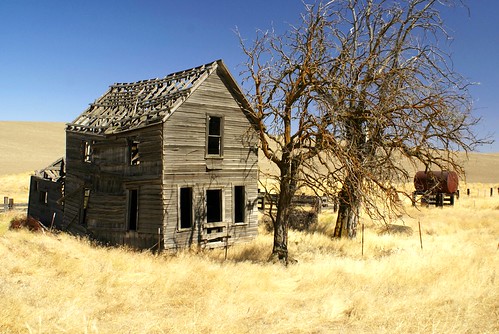My primary concern is maintaining a climate compatible with feeding everyone. Famines today are avoidable tragedies. There is enough food to keep everyone on Earth fed, just barely. We have turned a huge proportion of the world's biosphere over to making food for people. There is a good argument to be made that even if the climate was in a stable state that we are extracting so much from the earth to feed us that we are drawing down the productive capacity available to us. We already fix 200% more nitrogen from the Haber-Bosch process than the entire terrestrial biosphere does.Many anti-GMO's frame gene tech as a kind of Great Human Experiment, invoking memes like The Precautionary Principle and "lack of long-term studies."
Can we continue to feed a growing population under these constraints, along with the pressures of climate change? I doubt it's possible if we don't immediately start to decarbonize our economies. An erratic jet stream causing devastating droughts and floods all over the northern hemisphere is not good for agriculture. Looked at the price of corn lately? 4ºC warming or more, which is what we are on track for, takes us way, way outside the stable climate that has existed for the entire history of agriculture. Can we adapt without billions starving? I sure as hell hope so, but perhaps we'd be better off avoiding that particular experiment, no? (emphasis mine).
In the same way I think GMO vs. Organic is a false-dilemma, I'm coming around to consider the experiment frame as a way of deflecting realities of global warming, the real experiment, IMHO. If we're going to continue to feed humans on this planet in the mid-term, we're going to need crops that thrive in warmer temperatures. And more water. What happens if the North American Continent can only produce 15% of what it does now?
The GMO vs. Organic is really just a twist on the older Goliath vs. David: GMO is a symbol for powerful and parasitic corporatism, and Organic is a symbol of goodness and humility, and all summary qualities not associated with corporatism. (It's a classic Good v Evil framing, and I believe its simplicity will contribute to its passing.)
Another element missing from the Prop37 fracas is any discussion of farming practices, specifically the endemic exploitation of migrant workers, and the resulting poverty that surrounds much of modern food production. I have previously discussed themes of social privilege that pervade much of the language used by proponents of organic products.
For a little more perspective on this, we turn to Matthew Desmond, who writes:
[most discussions pivot] upon the concept of a lack. Structural accounts emphasize the inner city’s lack of jobs, social services, or organizations [read: farmer's markets, CSA's, community gardens, etc]. Cultural accounts emphasize the inner city’s lack of role models, custodial fathers, and middle-class values. Although usually pitted against one another, structural and cultural approaches share a common outlook: that the inner city is a void, a needy thing, and, like supplies lowered into the leper colony, that its problems can be solved by filing the void with more stuff: e.g., more jobs, more education, more social services.It seems clear that Prop37 addresses a specific psychological need: a "choice" to publicly display a set of (good!) cultural attributes without having to acknowledge the inherent exploitation. In this view Prop37 comes to represent a kind of Patriarchal Bargain: organic advocates can claim to be wrestling the system but in reality they are agreeing to leave it completely intact.
Desmond continues:
The total absence of these themes in the Prop37 discussion leads me to conclude this measure serves only a marketing purpose, but not the marketing of products to consumers. Instead, its for the marketing of ourselves to each other.[to elevate] the concept of exploitation to a more central position within the sociology of inequality. For who could argue that the urban poor today are not just as exploited as they were in generations past, what with the acceleration of rents throughout the housing crisis; the proliferation of pawn shops, the number of which doubled in the 1990s; the emergence of the payday lending industry, boasting of more stores across the U.S. than McDonald’s restaurants and netting upwards of $7 billion annually in fees; and the colossal expansion of the subprime lending industry, which was generating upwards of $100 billion in annual revenues at the peak of the housing bubble? And yet conventional accounts of inequality, structural and cultural approaches alike, continue to view urban poverty strictly as the result of some inanity. How different our theories would be — and with them our policy prescriptions — if we began viewing poverty as the result of a kind of robbery.

No comments:
Post a Comment